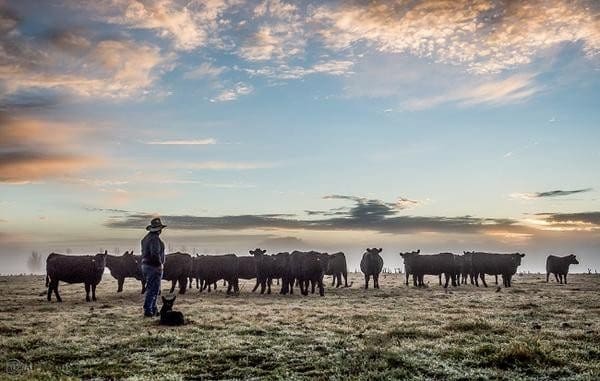
EVER since Federal Treasurer Scott Morrison all but knocked back the proposal for the sale of Australia’s largest cattle empire to a foreign-led consortium in April, debate has raged over the reasons why, and what impact the move has had.
According to some leading property experts, the decision has resulted in China’s investment interest in Australia going ‘off the boil’, while others remain confident that Chinese demand for Australian beef properties is still strong.
In late April, the Treasurer announced that the deal to sell S. Kidman and Co to Dakang Australia Holdings for $370 million was off, being deemed “contrary to the national interest.” It came after Mr Morrison rejected an initial bid for Kidman by a related Chinese company, Pengxin Group.
Of interest, according to the experts, is the fact that the Treasurer didn’t need to act prior to the election because the application to purchase Kidman was still before the Foreign Investment Review Board.
Following the announcement, Mr Morrison was accused of playing politics with many questioning his decision. Was it to appease Australian voters? Was it to buy votes by seeking to be acting for Australians by keeping Australia for Australia? Or was there a legitimate reason for the refusal?
It has also been suggested that the Chinese government didn’t want the bidder (Dakang Australia Holdings) to succeed in purchasing Kidman. As one industry source explained, “nothing happens with Chinese investment unless the Chinese government has a finger in the pie.”
Bill Loughnan is one of Queensland’s leading legal agribusiness experts and is a lawyer at Thynne + Macartney. He believes Scott Morrison’s decision was incorrect, if it was made for wrong reasons.
“An erroneous decision would be catering to the view that Australian property should only be owned by Australians. If, on the other hand, Chinese triads were trying to secure a foothold in Australia then that’s a perfectly legitimate decision,” Mr Loughnan said.
CBRE Agribusiness regional director Danny Thomas believes Australia sent China a woeful message in the way it knocked back the sale of S. Kidman & Co.
“I don’t have an issue with the FIRB or the Treasurer saying no. But it’s how you say it. The Shanghai-based Pengxin Group invested hundreds of thousands, if not millions of dollars, over an 18 month sales process to become the winner. After the first knock-back, someone must have kept Pengxin ‘warm’ because it put forward a second bid and was rejected again. That’s terrible. Then for the Treasurer to opine about all the reasons why he knocked back the bid. You can drive a bus through it, most of his logic wasn’t particularly helpful.”
Mr Loughnan agrees that there would have been significant costs on both sides, and for no successful outcome.
“If you were the Chinese and you’d been knocked back for political reasons and you didn’t know why, you’d be somewhat circumspect in putting forward another proposal. These days you pay significant application fees when you lodge a FIRB application, based on the value of the asset you are acquiring.”
And he doesn’t believe the completion of the election cycle will give foreign investors any more certainty. “My cynical nature says there wasn’t much certainty before the election, because Kidman was knocked back when most industry observers believed the application should have been approved,” he said.
Ruralco national real estate manager Andrew Adcock said in most cases, the government had firm control over Australia’s pastoral empires due to land tenure.
“The comfort for any government is knowing that leasehold landholders must adhere to strict guidelines. Ultimately, foreigner investors don’t own the land, they are just grazing it,” he said.
Mr Adcock is confident the Chinese are still interested in buying Australian beef properties, despite adopting a more cautious approach due to recent rises in foreign stamp duty.
“It’s another impost on foreign investment, but in the end it will just become a further cost of doing business in Australia. Initially, the investors will sit back, analyse it, think ‘they don’t want us here but we have nowhere else to go’, so they will stay in Australia and keep investing.”
Mr Adcock believes a safe political climate and a sustainable and disease-free industry will continue to secure future Chinese investments, but CBRE’s Danny Thomas isn’t as sure.
“There is some arrogance in our cattle market about how important our clean and green image is. Make no mistake, it is very important. However, for a large populace that wants to eat beef, it can be sourced elsewhere and the Chinese are currently buying from South America,” he said.
With FIRB approvals currently on hold until after the federal election, Mr Adcock is confident there is still a lot more money to come out of China. “We have a product they want. However, there will be a supply and demand problem. There are not the listings that one would expect on the market due to high cattle and commodity prices.”
Mr Thomas said statistically, China was not yet a significant foreign investor in rural Australia, but every Chinese transaction has been amplified due to public interest.
“The Chinese have done a couple of big transactions, but at the same time Canadians, Americans and Europeans have been investing significantly more money, but the difference is you never hear about them.”
“In terms of China going off the boil, I don’t think the level of inquiry is any different. In fact, over the last six months the level of inquiry from real Chinese purchases has actually increased,” in our experience.
Mr Loughnan said while there had been a greater number of significant foreign transactions for beef properties in 2016 compared to previous years, he was not aware of any further significant Chinese transactions in northern Australia so far this year.
